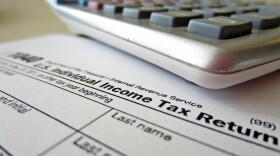One of the hallmarks of New Hampshire government is its insistence on maintaining low personal and business tax burdens. To that end, there’s no broad-based standard income, sales or estate tax. Inventory, capital gains, and professional services are also tax-free.Unlike other New England states, however, New Hampshire maintains two major business taxes. The first to be instituted was the Business Profits Tax (BPT). But since the bulk of the state’s businesses range from the small-to-very-small, larger firms complained they were shouldering the bulk of the tax burden. So 1993, the Legislature instituted the Business Enterprise Tax (BET). As Jennifer Weiner writes in “How Does New Hampshire Do It?,” a report released by the Boston Federal Reserve, the BET taxes “wages and salaries, interests and dividends paid by businesses.” In other words, it is, technically, an income tax, but the burden’s placed on businesses, rather than individuals. At 0.75 percent, the BET is also a lower rate than a standard state income tax.The other major piece of New Hampshire’s revenue pie is property tax. Residents pay both a state and town property tax. In 2010, Kiplinger’s reports the State Education Income Tax was “$2.35…per $1,000 of total equalized valuation.” Town rates, meanwhile, can vary widely across the state. If you don’t combine New Hampshire’s two business taxes, property tax makes up the largest slice of revenue, at 16 percent.Another notable aspect of New Hampshire’s tax system, as Weiner notes in the Boston Fed report, is that it’s highly diversified. No one tax makes up 20 percent of money coming in. Other major state taxes include Meals and Rooms, Tobacco, Liquor Sales and Distribution, Real Estate Transfer, Interest and Dividends, Insurance Premium, Communications, and Utility Property Taxes.Summary provided by StateImpact NH









